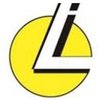Filter interviews by
Clean Science And Technology Interview Questions and Answers
11 Interview questions
Chemicals are substances with a defined composition, consisting of atoms and molecules, used in various applications across industries.
Chemicals can be organic (e.g., ethanol) or inorganic (e.g., sodium chloride).
They are used in manufacturing, agriculture, and pharmaceuticals.
Examples include acids (like sulfuric acid) and bases (like sodium hydroxide).
Chemicals play a crucial role in chemical reactions and proce...
A production officer oversees manufacturing processes, ensuring efficiency, quality, and adherence to safety standards.
Manage production schedules to meet deadlines, e.g., coordinating shifts to ensure 24/7 operations.
Monitor production quality and implement improvements, such as conducting regular inspections.
Ensure compliance with safety regulations, e.g., training staff on proper equipment handling.
Collaborate ...
Various permits ensure safety in different work environments, each tailored to specific tasks and risks.
Hot Work Permit: Required for activities like welding or cutting that generate sparks.
Confined Space Permit: Needed for work in areas with limited entry and exit, like tanks or silos.
Electrical Work Permit: Required for maintenance or repair of electrical systems to ensure safety.
Excavation Permit: Necessary for...
A type of beam is a structural element that carries load primarily in bending.
Types of beams include cantilever beams, simply supported beams, and fixed beams.
Beams can be made of materials such as wood, steel, concrete, or composite materials.
Beams are commonly used in construction to support roofs, floors, and bridges.
Exploring the synthesis and retrosynthesis pathways from alcohols to carboxylic acids.
Oxidation of primary alcohols leads to aldehydes, which can be further oxidized to carboxylic acids.
Example: Ethanol (C2H5OH) can be oxidized to acetaldehyde (CH3CHO) and then to acetic acid (CH3COOH).
Secondary alcohols can be oxidized to ketones, which do not directly convert to acids but can undergo further reactions.
Example: I...
Stress can be classified as acute or chronic, eustress or distress, and as physical, mental, emotional, or environmental.
Acute vs. Chronic stress
Eustress vs. Distress
Physical, Mental, Emotional, Environmental stress
Classification of materials is the process of categorizing substances based on their properties and characteristics.
Materials can be classified based on their composition (e.g. metals, polymers, ceramics)
Materials can also be classified based on their properties (e.g. conductors, insulators, magnetic materials)
Classification helps in understanding the behavior and applications of different materials
Conversion of dimension involves changing the unit of measurement from one form to another.
Conversion factors are used to convert between different units of measurement.
Common conversions include inches to centimeters, feet to meters, and pounds to kilograms.
Remember to multiply or divide by the conversion factor to get the correct result.
Turbines can be classified based on various factors such as type, working fluid, and application.
Classification based on type: Impulse turbines and Reaction turbines
Classification based on working fluid: Steam turbines, Gas turbines, and Water turbines
Classification based on application: Power generation turbines, Marine turbines, and Aircraft turbines
Steel can be classified based on its chemical composition, physical properties, and uses.
Classification based on chemical composition: carbon steel, alloy steel, stainless steel
Classification based on physical properties: high carbon steel, low carbon steel, high strength low alloy steel
Classification based on uses: structural steel, tool steel, stainless steel
Example: Carbon steel contains mainly carbon and iron,...
Clean Science And Technology Interview Experiences
10 interviews found
(1 Question)
- Q1. Basic engineering questions, Questions based on your role in previous company, problems in your shift n how you solved
(7 Questions)
- Q1. What are the types of pump
- Ans.
Types of pumps include centrifugal pumps, positive displacement pumps, and axial flow pumps.
Centrifugal pumps: use a rotating impeller to increase the pressure of a fluid.
Positive displacement pumps: move fluid by trapping a fixed amount and forcing it through the discharge.
Axial flow pumps: move fluid parallel to the pump shaft.
Examples: Centrifugal pump - water pump, Positive displacement pump - diaphragm pump, Axial...
- Q2. Classification Of material
- Ans.
Classification of materials is the process of categorizing substances based on their properties and characteristics.
Materials can be classified based on their composition (e.g. metals, polymers, ceramics)
Materials can also be classified based on their properties (e.g. conductors, insulators, magnetic materials)
Classification helps in understanding the behavior and applications of different materials
- Q3. Classification of stress
- Ans.
Stress can be classified as acute or chronic, eustress or distress, and as physical, mental, emotional, or environmental.
Acute vs. Chronic stress
Eustress vs. Distress
Physical, Mental, Emotional, Environmental stress
- Q4. What are a type of beam
- Ans.
A type of beam is a structural element that carries load primarily in bending.
Types of beams include cantilever beams, simply supported beams, and fixed beams.
Beams can be made of materials such as wood, steel, concrete, or composite materials.
Beams are commonly used in construction to support roofs, floors, and bridges.
- Q5. Conversion of dimension
- Ans.
Conversion of dimension involves changing the unit of measurement from one form to another.
Conversion factors are used to convert between different units of measurement.
Common conversions include inches to centimeters, feet to meters, and pounds to kilograms.
Remember to multiply or divide by the conversion factor to get the correct result.
- Q6. Classification of turbine
- Ans.
Turbines can be classified based on various factors such as type, working fluid, and application.
Classification based on type: Impulse turbines and Reaction turbines
Classification based on working fluid: Steam turbines, Gas turbines, and Water turbines
Classification based on application: Power generation turbines, Marine turbines, and Aircraft turbines
- Q7. Classification of steel
- Ans.
Steel can be classified based on its chemical composition, physical properties, and uses.
Classification based on chemical composition: carbon steel, alloy steel, stainless steel
Classification based on physical properties: high carbon steel, low carbon steel, high strength low alloy steel
Classification based on uses: structural steel, tool steel, stainless steel
Example: Carbon steel contains mainly carbon and iron, whil...
(1 Question)
- Q1. What is your educational background?
- Ans.
I have a Bachelor's degree in Human Resource Management.
Bachelor's degree in Human Resource Management
Courses in HR practices, organizational behavior, labor laws
Internship experience in HR department
- Q1. What are chemicals ?
- Ans.
Chemicals are substances with a defined composition, consisting of atoms and molecules, used in various applications across industries.
Chemicals can be organic (e.g., ethanol) or inorganic (e.g., sodium chloride).
They are used in manufacturing, agriculture, and pharmaceuticals.
Examples include acids (like sulfuric acid) and bases (like sodium hydroxide).
Chemicals play a crucial role in chemical reactions and processes.
- Q2. What is chemistry ?
- Q3. What is the role of production officer in company?
- Ans.
A production officer oversees manufacturing processes, ensuring efficiency, quality, and adherence to safety standards.
Manage production schedules to meet deadlines, e.g., coordinating shifts to ensure 24/7 operations.
Monitor production quality and implement improvements, such as conducting regular inspections.
Ensure compliance with safety regulations, e.g., training staff on proper equipment handling.
Collaborate with ...
I appeared for an interview before Mar 2024, where I was asked the following questions.
- Q1. Written test, Technical Round, HR Round
- Q2. IUPAC, Molecular weight, Anisole structure reaction synthesis
- Q3. 1N NaOH preparation
- Q4. Synthesis & Retrosynthesis of Alcohol to Acids
- Ans.
Exploring the synthesis and retrosynthesis pathways from alcohols to carboxylic acids.
Oxidation of primary alcohols leads to aldehydes, which can be further oxidized to carboxylic acids.
Example: Ethanol (C2H5OH) can be oxidized to acetaldehyde (CH3CHO) and then to acetic acid (CH3COOH).
Secondary alcohols can be oxidized to ketones, which do not directly convert to acids but can undergo further reactions.
Example: Isopro...
I appeared for an interview before Mar 2024, where I was asked the following questions.
- Q1. What are the different types of permits?
- Ans.
Various permits ensure safety in different work environments, each tailored to specific tasks and risks.
Hot Work Permit: Required for activities like welding or cutting that generate sparks.
Confined Space Permit: Needed for work in areas with limited entry and exit, like tanks or silos.
Electrical Work Permit: Required for maintenance or repair of electrical systems to ensure safety.
Excavation Permit: Necessary for digg...
- Q2. What suggestions do you have?
- Ans.
Implementing proactive safety measures can enhance workplace safety and reduce incidents.
Conduct regular safety training sessions for all employees to ensure they are aware of safety protocols.
Implement a safety audit system to identify potential hazards and rectify them promptly.
Encourage a culture of safety by rewarding employees who report unsafe conditions or practices.
Utilize safety technology, such as wearables, ...
I appeared for an interview in Sep 2022.

Colar coding of line in plant and NFPA tringal
Dcs operation, Manpower handling, 5s team member
Interview Preparation Tips
I applied via Company Website and was interviewed in Oct 2021. There were 4 interview rounds.
Interview Questionnaire
2 Questions
- Q1. DISTILLATION Important
- Ans.
Distillation is a process of separating components of a mixture based on their boiling points.
Distillation involves heating a mixture to vaporize the component with the lowest boiling point.
The vapor is then condensed and collected as a separate liquid.
Distillation is commonly used in the production of alcoholic beverages, petroleum refining, and purification of water.
There are different types of distillation such as s...
- Q2. Chemical engineer
Interview Preparation Tips
Interview Questionnaire
1 Question
- Q1. Distillation column operating
I applied via Walk-in and was interviewed in Aug 2019. There were 3 interview rounds.
Interview Questionnaire
2 Questions
- Q1. Last year study and subject
- Ans.
I studied Analytical Chemistry last year, focusing on quality control methods and techniques.
Studied Analytical Chemistry
Focused on quality control methods and techniques
Practiced using various analytical instruments
Learned about validation and verification processes
- Q2. Analytical instruments and laboratory work
Interview Preparation Tips
Top trending discussions






Clean Science And Technology Interview FAQs
Tell us how to improve this page.
Clean Science And Technology Interviews By Designations
- Clean Science And Technology Chemist Interview Questions
- Clean Science And Technology Production Interview Questions
- Clean Science And Technology Senior Engineer Interview Questions
- Clean Science And Technology QC Chemist Interview Questions
- Clean Science And Technology Project Trainee Engineer Interview Questions
- Clean Science And Technology HR Trainee Generalist Interview Questions
- Clean Science And Technology Safety Supervisor Interview Questions
- Clean Science And Technology Production Incharge Interview Questions
- Show more
Interview Questions for Popular Designations
- Senior Executive Interview Questions
- Executive Interview Questions
- Analyst Interview Questions
- Sales Executive Interview Questions
- Associate Software Engineer Interview Questions
- Java Developer Interview Questions
- Senior Software Engineer Interview Questions
- Assistant Manager Interview Questions
- Show more
Overall Interview Experience Rating
based on 14 interview experiences
Difficulty level
Duration
Interview Questions from Similar Companies
Clean Science And Technology Reviews and Ratings
based on 164 reviews
Rating in categories
|
Chemist
107
salaries
| ₹1.6 L/yr - ₹3.4 L/yr |
|
Production Chemist
47
salaries
| ₹1.2 L/yr - ₹3.5 L/yr |
|
Production Engineer
23
salaries
| ₹2 L/yr - ₹3.6 L/yr |
|
Production Officer
23
salaries
| ₹2 L/yr - ₹4.5 L/yr |
|
Maintenance Engineer
20
salaries
| ₹2.3 L/yr - ₹3 L/yr |

Sheenlac Paints

Astral Adhesives

Deepak Fertilisers and Petrochemicals

Laxmi Organic Industries
- Home >
- Interviews >
- Clean Science And Technology Interview Questions













